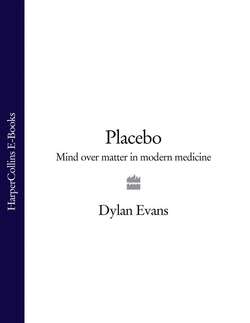Читать книгу Placebo: Mind over Matter in Modern Medicine - Dylan Evans - Страница 12
THE LIVES TO COME
ОглавлениеMedical progress is based on research which ultimately must rest in part on experimentation involving human subjects.
WORLD MEDICAL ASSOCIATION, Journal of the American Medical Association (1964)
There are obvious ethical problems with the idea of using a no-treatment control group. To withhold all medical treatment from a group of patients, simply for the sake of scientific research, seems to flout some of the most basic principles of medical ethics. Similar concerns were raised in the late 1940s and early 1950s when Gold, Beecher and others argued for the need to include placebo control groups in clinical trials. How could doctors justify doing nothing for patients who were clearly in need of help, when active treatments were readily available?
As we have already seen, Beecher answered these objections by claiming that giving patients placebos was far from ‘doing nothing’. If placebos were as powerful as he argued, then the patients in the control group would not fare much worse than those in the experimental group. The same cannot be said, of course, for those in a no-treatment group. In that case, doctors do not even give a placebo. This seems much harder to justify.
Actually, there are several considerations that make the inclusion of no-treatment groups in clinical trials less ethically dubious than it may initially appear. First, the term ‘no-treatment group’ is misleading, since patients in such groups need not be deprived of all medical care. In fact, if we are simply interested in measuring the placebo effect, the ideal situation would be for the ‘no-treatment’ group to be treated in exactly the same way as the placebo group, with the sole exception of not receiving the placebo. Only then could researchers be confident that any differences between the recovery rates of the two groups were due to the administration of the placebo and not some other factor. So the no-treatment group should, ideally, be visited by the doctor as frequently as the placebo group, be given the same encouragement and support, and so on. It would be more accurate to call this a ‘no-placebo’ group rather than a ‘no-treatment’ group.
There is also the possibility that the experimental treatment is not, in fact, effective, in which case those who are not receiving it do not suffer by comparison with those who are. This also applies to the placebo treatment. If the placebo effect really is just a myth, as the critics claim, or if placebos simply do not work for the particular medical condition being examined, then giving patients placebos really is not much better than giving them nothing at all. It may make them feel slightly better, but it would have no effect on their disease. In this case, Beecher’s justification for including placebo groups in clinical trials falls apart.
There is another ethical consideration, though, that applies equally to both placebo control groups and no-treatment arms, irrespective of whether the placebo effect is real or not. This is the idea that the needs of current patients should be balanced against those of future generations. Depriving a small group of patients for a short time of all treatment might be defensible if it enabled doctors to make discoveries that would benefit vast numbers of future patients. Such moral calculations are notoriously difficult, and have been used to justify the most appalling crimes. Millions of Soviet citizens, for example, were encouraged to put up with draconian social policies by the officially-sponsored belief that their grandchildren would reap the rewards of their labour. Nevertheless, it is doubtful that immediate needs should always trump those of future generations. To call for the introduction of no-treatment groups in clinical trials is not to put the concerns of the disinterested scientist above those of the caring physician. The ultimate beneficiary of good medical research is the patient, not the researcher.
